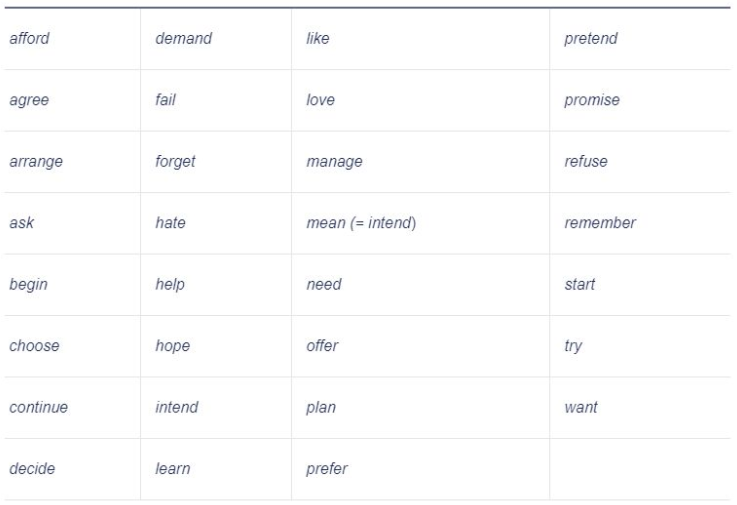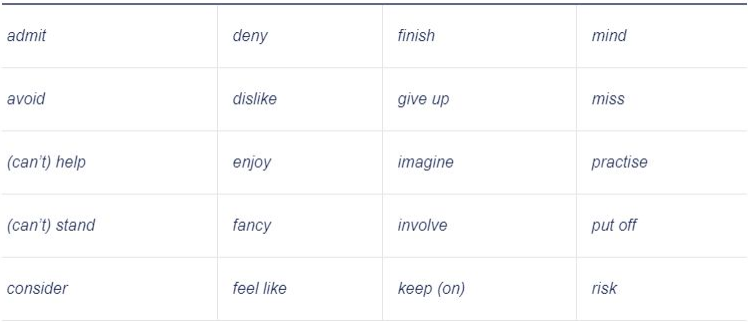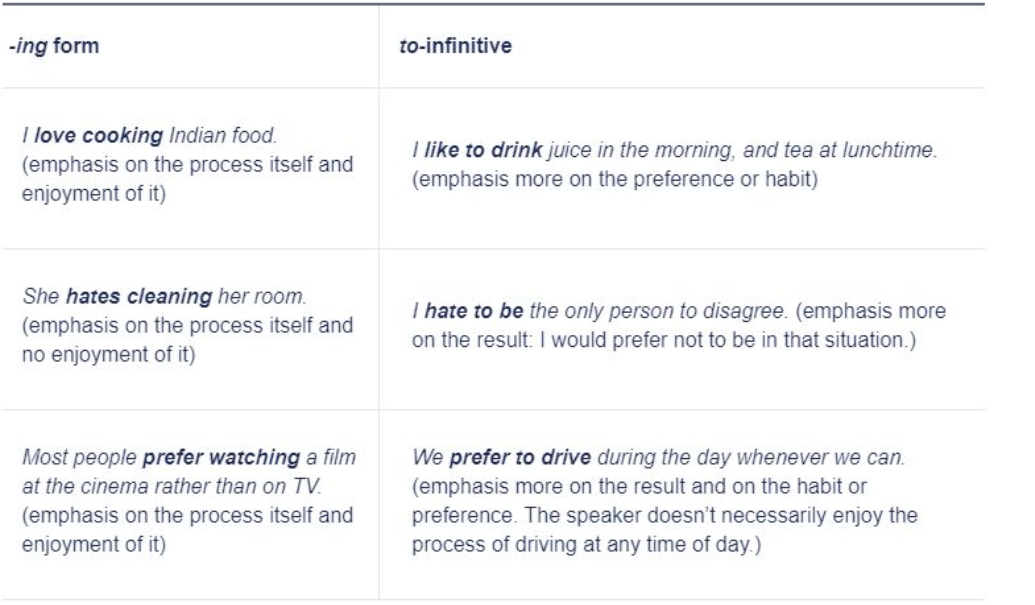Contents: The world around us
VOCABULARY: Public transport, Information desk, One-way ticket, Round trip, Five-star hotel, Direct flight, Flight attendant, City break
LANGUAGE DEVELOPMENT: -ing form and infinitives
1. VOCABULARY

a system of vehicles such as buses and trains that operate at regular times on fixed routes and are used by the public

a place in a public building, store, etc. where you can go to get information, for example about where to find things in

travelling or allowing travel in only one direction

a trip from one place to another and back to where you started

A five-star hotel or service is of the best possible quality

going in a straight line without stopping or changing direction

a person in an aircraft whose job is to serve passengers and to make sure they obey safety rules

a short holiday spent in a city
2. LANGUAGE DEVELOPMENT
Verb patterns: verb + infinitive or verb + -ing?
Verbs followed by a to-infinitive
Some verbs can be followed immediately
by a to-infinitive:

For example,
I can’t afford to go on holiday.
It began to rain.
She hopes to go to university next year.
My mother never learnt to swim.
Did you remember to ring Nigel?
Verbs followed by -ing
-ing but not to-infinitive
Some verbs are normally followed by the -ing form,
not the to-infinitive:

For example,
I always enjoy cooking.
Not: I always enjoy to cook.
We haven’t finished eating yet.
Not: We haven’t finished to eat.
She keeps changing her mind about the wedding.
Verbs followed by a to-infinitive or -ing
Hate, like, love, prefer
Hate, like, love and prefer can be followed either by -ing or a to-infinitive. The difference in meaning is often small. The -ing form emphasises the verb itself. The to-infinitive puts the emphasis more on the preference for, or the results of, the action.

For example,
Hate, like, love, prefer with would or should
When hate, like, love and prefer are used with would or should, only the to-infinitive is used, not the -ing form:
She’d love to get a job nearer home.
Not: She’d love getting a job nearer home.
Would you like to have dinner with us on Friday?
Verbs followed by a direct object and a to-infinitive
Some verbs are used with a direct object (underlined) followed by a to-infinitive.
These verbs include:

For example,
I advised him to get a job as soon as possible.
Did Martin teach Gary to play squash?
They want me to go to Germany with them.

